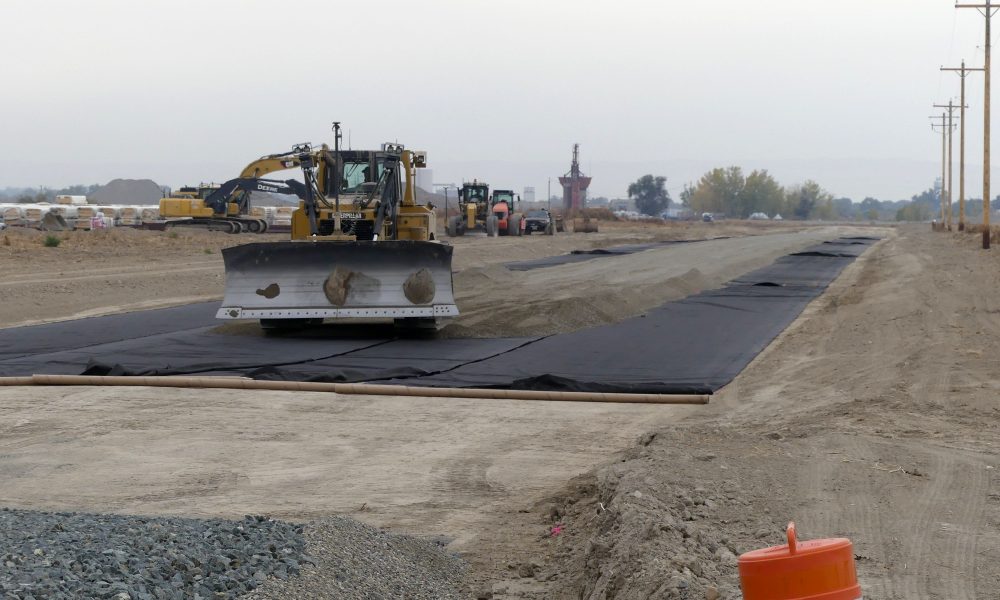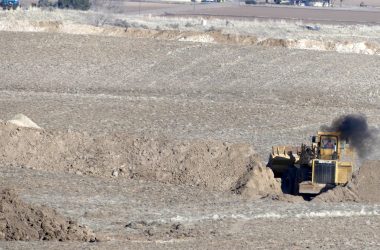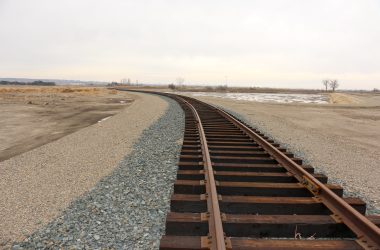Editor’s note: This is the first in a series of editorials examining troubles that plague the Treasure Valley Reload Center, and calling for significant changes in how the project is managed.
Not one more dime should be spent on the Treasure Valley Reload Center until the community gets some answers – and the truth.
The public is being asked to pump at least $6.5 million more into this mess. Taxpayers are asked to trust the team in place to spend that money. That’s the team that has been wrong time after time.
They’ve been wrong on costs.
They’ve been wrong on contracts.
They’ve been wrong on completion dates.
And they’ve been wrong on where they could get more money.
Along the way, the community has been misled. The truth has been hidden, often pried loose only by the Enterprise’s use of public records law.
This is the first of four editorials outlining what steps are needed now. This project, indeed, has to be finished. But not in the manner that got us to this point.
The place to start is with the engineering firm of Anderson Perry & Associates and its president, Brad Baird.
The firm is under contract to provide engineering and construction supervision on the Nyssa project. Greg Smith, who is paid to be in charge, recently admitted that he considers Anderson Perry, not him, to be the project manager.
Consider the company’s record on handling the Treasure Valley Reload Center.
The company was late getting needed federal and state permits. An apparently frustrated state official deemed a permit application expired, noting the state had repeatedly asked Anderson Perry for more information it wasn’t providing.
Baird’s answer? Just normal business.
In 2021, the state wanted a final budget for the project.
Baird sketched one out on paper, sending a note to Smith that Treasure Valley Reload Center would need another $3.6 million on top of $26 million expected from the state. “Wise to round up to $5 million,” he advised Smith in January 2021.
But Baird instead prepared for state officials a budget that balanced to exactly $26 million, working in concert with Smith. Where would we be today if Baird had the courage then to publicly raise the alarm on inadequate funding?
Once construction got underway in late 2021, more trouble developed on Baird’s watch. The ground on the farmland proved too soft. The wetland proved far deeper than expected. But Anderson Perry apparently had no true information on the depth. Remember, this swamp had to be filled in enough to carry rail lines and loaded freight cars.
Why didn’t experienced engineers know more about what they were building on? Baird explained in a report last spring to project officials. “We could not excavate in the wetland areas without a permit being in place to work within the wetlands. The permit process takes a very long time,” he wrote. “Thus, no explorations occurred in the wetland areas.”
Consider that: “No explorations occurred.” On ground where you plan to build a railroad?
That choice ended up costing the public millions.
And Baird and Anderson Perry have proven to be poor contract managers.
The firm’s contract for the project was capped at $250,000, with expectations that legal amendments would increase that later on. But only through investigative work by the Enterprise did it emerge that Anderson Perry had billed $500,000 in excess of that with no change in contract terms.
And while the contract fixed the rates to be charged for Anderson Perry personnel, the company twice hiked its charges. No one could produce any document showing approval by project officials to do that. Baird said such pay increases were just routine.
That’s not what the contract said. And in rural Oregon, a person’s word – and their contract – should be their bond.
Baird later described that all as “simply an oversight.” His firm is now contracted to get $1.85 million for its Nyssa work.
Other lapses have occurred.
Baird and his team consistently listed the state grant coming for the project at $26 million. But the state’s grant was $376,000 less than that – evident in the state’s contract. The project team, though, plunged on with planning to spend $376,000 it didn’t have.
Baird insisted for at time that $26 million was the correct number. Only in February – after years of error – did Baird and his team finally list the true sum coming from the state.
There have been other mistakes. In the most recent budget, Baird’s team showed the project got $3 million for a water line. Wrong. The project is getting $1.8 million.
All along, Baird has consistently tried to put a happy face on developments. When costs came in high, he said he was confident the numbers would turn out to be lower. That’s rarely been the case. Last year, he kept saying contractors were making good progress. They were bogged down in mud and falling behind schedule month by month.
And he tried to perfume the budget stink. Last July, for instance, he presented a budget and, according to minutes, he reported good news: “Overall, the budget picture continues to improve.”
Instead, it worsened. In that July 2022 report, he estimated one contractor’s work would top out at $10.6 million and be done in September. In fact, the cost turned into $13.7 million and went on another three months.
We alerted Baird that we were preparing this editorial. He was invited to submit any statement. As so often is the case with questions from the newspaper, Baird stayed silent.
This, then, is the company that the people of Malheur County and, indeed, state legislators are supposed to count on to bring this reload center home. This far in, it’s not sensible to swap out project engineers. But it is sensible to hold Anderson Perry and Baird accountable. While the Legislature mulls more money that won’t come for months, the Malheur County Court has the time to retain an independent forensic engineering firm to examine this project. We need experts who can push through the cloud of excuses and generalities used to justify what happened. Baird and his company ought to welcome such an inspection. If indeed they just faced bad luck and questionable orders from Greg Smith, let that be shown. If they neglected their professional duties, that’s worth learning now – not after several more millions are invested. – LZ
HOW TO SUBSCRIBE – The Malheur Enterprise delivers quality local journalism – fair and accurate. You can read it any hour, any day with a digital subscription. Read it on your phone, your Tablet, your home computer. Clicksubscribe – $7.50 a month.




